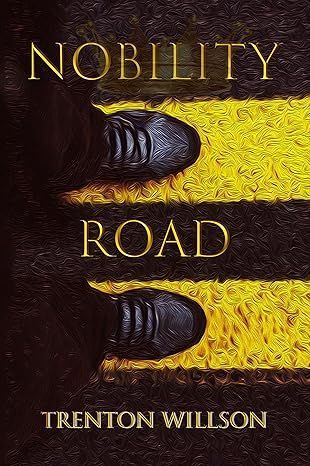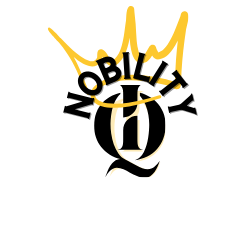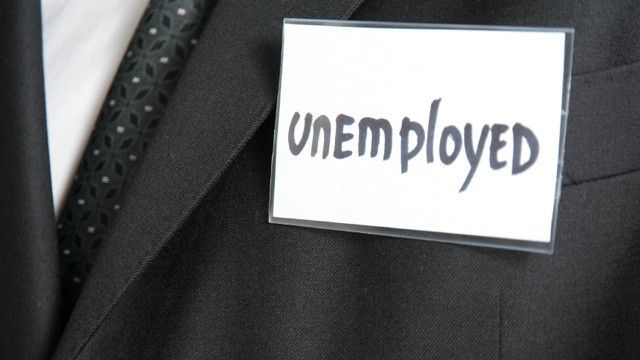Chapter 1: Nobility Road Book

Chapter 1
Know Thyself
Explore deeply who you are, your strengths, weaknesses, interests, skills, and your place in this world. This includes your beliefs of where you came from, why you are here, and where you are going.
As I pulled into the Walmart parking lot, I saw a familiar figure in the distance. He was slightly bent over pushing a long line of carts towards the store. I felt a little excitement build in me as I rushed to catch up to him. I was eager to know how he was doing in his job. The smile on his face and the confidence in his voice told me all I needed to know about how he was doing. I didn’t need to ask.
The moment he recognized me his reaction made me blush a little. We reminisced about his journey as he accompanied me into the store. “This is my job coach,” he would shout shamelessly to his colleagues, “he helped me get my job!”
Greg, who we affectionately referred to as our platinum customer, had been attending our job club from its beginning. Only rare emergencies kept him from attending. Without fail, his car would be parked out front, promptly 15 minutes early, even before most of the employees arrived, waiting for the doors to open. His punctuality and consistency would eventually be his golden ticket.
When I first met him, I recognized that he had special needs. It wasn’t until I worked my way into managing the job club, did I know the extent. His learning disability made it difficult for him to grasp new tasks and most of his professional experience was gathering carts at grocery stores. A false claim of carelessness and a sagging economy left him jobless at the onset of the great recession and he would patiently, and persistently keep trying for nearly three years.
As the facilitator of the job club, I had developed a twelve-week curriculum that taught the critical points of the job search. The repetition of the topics sank into his mind as he meticulously applied every effort to succeed. At one point, not long before he found work, the topic of our discussion was interviewing. I asked for a volunteer to do a mock interview. Instantly, his hand shot up before I could finish the question. His mock interview was nearly flawless! His commercial was well prepared and natural. He told stories of situations he had been in, the actions he took, and the results of his actions. He was confident and poised and he knew who he was.
We were finally able to find him a couple part-time jobs for which he was highly commended for his work ethic, but when we learned Walmart was building a new store and would be recruiting employees to fill the positions, he knew this was his chance to do what he loved to do. With absolute confidence, I recommended him to the recruiters and assured them that he would be their best employee. He would always be on time and never take days off. Greg knew what he wanted, and he knew who he was. He was an All-American cart pusher.
====
Have you ever really pondered deeply the question, who am I? What does it mean to know thyself? What makes us unique? There is nobody that can fill a space as you do. There is nobody that has the skill to do what you are meant to do. There is a purpose in this world and it is part of our test in life to figure out what that purpose is. To “know thyself” is to understand what makes us unique, what we are best at, and a complete understanding of our divine purpose for our existence.
Mindset
We are the conglomeration of many factors. One of the most powerful is our experiences and the decisions we make in life about ourselves based on those experiences.
As children, our ability to decipher between reality and perception was often skewed. A child who comes into the room with their version of the Mona Lisa to show a parent who is on a very important phone call will likely not understand the full situation if the parent brushes them off because they are dealing with a serious situation at work. The child might interpret the short response of, “honey, not now, I am dealing with something urgent for work!” with, “honey, you aren’t as important as what I am doing, and I don’t have the time nor the interest in your childish art right now.” This is a big difference in what is the reality, as compared to what a young child might perceive. This child may make the decision in that moment that they are not loved, they are not important, and they are not talented. All of which were completely unintentionally communicated by the parent.
As parents, we must recognize that our children are lousy interpreters. They are still building the connections in their brain of how to use logic to analyze a situation. Their brains are very elastic and susceptible to incorrect thinking. If our child comes to us when we are stressed and we literally can’t pay attention, we must do all we can to show our child that they are the most important thing to us and we will give our full attention when the current crisis has been resolved.
Invite them to sit on your lap while you have your phone call. Ask them to leave it on your desk so you can look at it better after the call. Then when the call is done, give them your full attention and praise that they need to feel loved and recognized.
We have our own experiences that contributed to our limiting or incorrect beliefs. How do we discover these beliefs and change them? Sometimes it will require a professional counselor or a mentor who knows how to help with this. Once you identify your limiting beliefs, create new ones. Search for evidence that your new beliefs are truer than your old beliefs.
Declarations and vision boards are tools that many experts teach to help eradicate negative thinking and give us a new mindset about ourselves. Repetition about who we truly are, and who we want to become eventually creates new pathways in our brain that we begin to gather evidence for these new, healthier beliefs.
Some of the most powerful words in the English language are “I can’t” and “I am.” These are two phrases that create in us what comes afterward. If “I can’t” is our belief, we won’t, almost ever! When we say “I am” stupid, unworthy, poor, or any other negative word, our mind searches for proof. But if we change that to a positive, “I am” smart, powerful, creative, worthy, we begin to see the evidence all around us. A mindset is a powerful tool that if we understand how to use it correctly, it will change everything in our lives. After all, one of the greatest teachers in the history of mankind is “The Word,” The Great “I Am,” The “King of Kings,” even Jesus Christ. When we use the phrase, “I am” keep in mind that this is one of His names.
Strengths
Brainstorming a list of our strengths is never an easy thing to do. Why? Because for some crazy reason, society has hammered it into our brain that to be humble, we should avoid bragging about ourselves. Humility is not lowliness, it is seeing others as equals AND knowing OUR divine value.
I once had a teacher suggest that if she were to ask someone in the audience to write on the chalkboard all the good qualities they possessed, it would be difficult to fill a portion of the board. But if she asked the same person to write all the qualities of another person, they would easily fill up the chalkboard. Why do we struggle so much to see the greatness in ourselves? We will never become our greatest self if all we see and focus on are the things we can’t do.
In the book Strengthsfinder 2.0, the introduction discusses in great detail the flaw in the societal focus of turning weaknesses into strengths. The authors instead teach a focus of building on our strengths instead of trying to fix our weaknesses. I don’t think they intend to discourage us from trying to be better by improving our weaknesses, but how much easier is it to strengthen muscles we already have than it is to build them where they aren’t?
Knowing what strengths we have, and narrowing them down into a hierarchy of our greatest strength to our baby strengths, can offer a great deal of insight into the best chance of success for our career.
After spending a good 10-15 minutes to truly examine, and list all of your strengths, it is good to review them by asking:
- What are my top strengths?
- Where did I learn these?
- Which ones do I not remember being taught? (They come naturally)
- Which ones do I use in all aspects of my life?
- Which ones energize me the most?
These questions can expand options for you that you may have never thought of before. Too often, as we choose a career, our focus is, what’s the pay? Does it have benefits? And can I tolerate it? This approach more often than not leads to misery and a life well below our potential. This is called settling. There is a time and a place for accepting any job, but you must have a plan! Who do you aspire to be? What career will fit my skills and interests? Where can I make the biggest difference? If you stay where you settle, you become stuck and stuck people are depressed, angry, frustrated, and live a life of regret because they settle for now instead of reaching for a better future.
Weaknesses
When we hone in on our strengths, our weaknesses become apparent. Although I just finished explaining how important it is to focus on strengths, understanding weakness still is important in choosing a career. Besides, none of us will ever go through life, completely avoiding our weaknesses. Some we are meant to turn into strengths. Some are simple to overcome like being computer illiterate for instance. Will it take time? Yes! Will it be easy? Probably not. But is it easier than adding 6” to your stature so you can play basketball better? Absolutely!
There are several kinds of weaknesses we need to understand to properly decide which ones we can and should work on:
- Unalterable Weaknesses – These are usually physical and there is nothing we can do about it. If I love basketball, but I am vertically challenged, there is nothing I can do about that. I may still be able to learn to play well, but I will likely never be asked to be the Center for an NBA franchise.
- Character Weaknesses - We rarely will recognize character weaknesses in ourselves until they are pointed out by someone or we are faced with a situation where the obvious sign smacks us in the snoot. Character weaknesses are difficult to overcome, especially without help. We have likely been raised by parents who, “bless their hearts,” did their best but they too were handed a faulty handbook by their parents. It may take counseling, personal study, and even divine guidance to chip away at these weaknesses. Unfortunately, character weaknesses are important to work on because, “If you always do what you’ve always done, you’ll always get what you have always gotten” and what you have gotten has been the same for generations. If you want to break the family patterns, ya gotta do something different!
- Skill Weaknesses – These are probably the easiest to fix. They may not be the most critical, but anyone can be taught a skill. Other types of weaknesses may shimmy into the learning process and even stifle success, but one can always learn. A person who can’t carry a tune may be able to learn how to read music and even control their voice but a hearing problem may make it difficult for them to become a great singer.
- Personality Weaknesses – These are similar to character weaknesses but aren’t as ingrained. Our personalities play a big role in who we are. We have a natural personality that we are born with and then we have a nurtured personality that can and often does change depending on our circumstances. Personality weaknesses are simply a lack of effort or experience in reacting to a given circumstance. Awareness is the key to becoming more well-rounded. A shy, nurturing, emotional person, rarely chooses to be the football coach who has to motivate by loud, animated instructions, but they can learn how to if they choose to step out of their comfort zone.
- Knowledge Weaknesses – Often, we are unaware of what we don’t know until we learn what we were unaware of before. Some things are weaknesses because we have never been in a situation where we could learn that skill or information. There is a saying that people are kept from the truth only because they know not where to find it. People are often kept from a skill or hobby only because they know not where to learn about it.
Interests
At an early age, we begin to express the interests of who we are (nature) as well as how our environment (nurture) has influenced our interests. Often an only girl in a large family of boys tends to enjoy traditionally masculine activities whereas, a boy who grows up with all sisters may take on a softer, more feminine behavior and interest.
When I meet with someone wanting to seek a better career, the following conversation often occurs,
Me: When you were a child, what did you want to be when you grew up?
Them: An NFL football player.
Me: Why did you want to play in the NFL?
Them: Well, I was good at it. I enjoyed playing the game and I enjoyed playing it with my friends.
Me: What made you good at football, and what did you like most about the game?
Them: I was faster than most of my friends and I could catch the ball well. I have really big hands which made it easy for me to catch the ball. Plus, it gave me time to be with friends, I like being around people, doing active things. The accomplishment of catching that long pass and scoring a touchdown is a feeling I rarely fell doing anything else.
Me: What do you do in your life today that makes you excited as football did back then?
Them: Well, spending time with my family is what I like the most. I go to work and though, I am not loving what I do, I enjoy working with the people there. I have really good friends at work and I can get along with them well. I manage a team and helping them be more productive and achieving their goals is exciting to me. I’ve been able to get three of my workers promoted in the last year and that was energizing to me.
Me: What don’t you like about your job?
Them: I just don’t feel like I am developing myself. The job is kind of a dirty job and I would rather be in a more strategic role. I am a good manager and I am well respected, but I am not being challenged and growing the way I would like. I am in a stagnant spot in my career and I would like to be a better provider for my family, have more time at home, and contribute my experience in the community and I don’t feel like I can do that where I am now.
Let’s analyze this conversation and understand a bit of the psychology. Notice that the length of responses from the first question to the last. Also, see how emotional the responses become. Often when we interview someone, the first question brings a very surface response, the second layer opens the door a bit and the third question hits the heart and reveals a great deal of emotion.
In this conversation, we learned that he enjoyed football as a kid because he was good at it, he enjoyed the thrill of victory, and the social aspect of the game made him feel closer to his friends. Presently, his family brings some of those feelings, so does being at work with his coworkers, and he loves to develop success in other people. We also learned that he wants to be where he too can grow and progress and not just develop others. He also loves to be physically active, play, spend time with his family, and make a difference in his community.
This is a lot of important information that builds a pretty good foundation for searching for a better career. Further discussion would begin to analyze which jobs resonate with the priorities identified in the conversation. Hobbies would play a big part in pinpointing a career. Many people subscribe to the fallacy that work is a serious thing where hobbies and fun don’t belong. Many hobbies are less than profitable but finding a career that involves at least some of their hobbies alleviates some of the seriousness of a job and brings joy into work.
Skills
The internet has a bounty of options for skills evaluations. It may seem a little high schoolish for a grown, experienced professional to take a skills assessment, but if they are in a career that doesn’t suit them, why wouldn’t they take a little time to explore what they like and are good at.
Skills assessments typically consist of several questions or statements about random subjects, such as, “Do you like to build cabinets?” or, “Do you like to create spreadsheets?” or “Do you like conducting meetings?” or “Play is important to me at work.” Each question is rated according to your skills or interests and at the end is calculated into results that correspond with a list of industries or jobs you may be interested in.
Skills can easily be developed through learning and practice, or they can also come naturally. Physical abilities, such as dexterity, strength, speed, or keen senses are often a natural gift, whereas the use of tools, software or other machines has to be learned. Skill development is amplified if there is a combination of natural abilities combined with effective mentoring and practice.
Mentoring significantly accelerates the learning process. Mentors are professionals who have had a great deal of experience and a proven history of abundant success in a specific arena.
Mentoring happens in four different ways:
Practice is also essential to effective skill-building. But “practice doesn’t make perfect, practice makes progress.” No truer words could have been taught than these. Most skills will never be perfected, but with perfect and consistent practice, we find progress.
Your Place in the World
I believe in God and that has profoundly shaped my life. I recognize that many who will read this book may have different views of deity. Regardless of what your spiritual beliefs are, one thing is for sure, there are forces in this world, powers in this universe that are greater than man and we must recognize our place.
No creation in this world compares to the magnificence of life. If God exists or if he doesn’t, there is no doubt that the miracle of life is undoubtedly the most fascinating, complex, infinitely marvelous aspect of this world. Science can scarcely touch the complexities of our cells, the regeneration of our body, the capacities of our brain, the miracle of sight, the electrical power of touch and so many other facets of our being. Is it not a wonder that we are here to make a difference?
We all have a mission, a purpose. We have been given through this miracle of life very distinct bodies with varying abilities. We have been placed into circumstances that are uniquely ours that has shaped and formed us into an individual that has no equal. With this knowledge and the truth that we are the only ones on this planet that exists, has existed, or will ever exist with our exact body, experiences, and perceptions, what are we going to do with them?
Though we are unique, our experiences resonate with others. I am not the only one to have stubbed my toe. I am not the only one to have an addiction. I am not the only one who recently lost a parent. My experiences matter to others and other’s experiences matter to me. We are all in this word together and we can use these experiences to help or we can set them aside thinking they aren’t valuable. If we choose the latter, unfortunately, someone in this world will miss out on the lessons you could have taught them.
My belief in God and my spiritual beliefs have taught me that I have a purpose on this earth and if I don’t discover that purpose and fulfill it, I have failed my earthly brothers and sisters. I believe that they will still have their opportunities to learn because others will accept the call I failed to accept. I may someday face that person and have to answer why I didn’t keep my promise to them. We must burst out of our comfort zones and live our divinely agreed-upon mission.
Summary
Knowing who we are and accepting the entire package is one of the most important things we must do in life. I live in a demographic where personal flaws abound, but the moral standard is set so high that knowing who you are is painful, depressing, and outright shameful if we focus on our weakness or perceived faults. That is why a deeper reflection and recognition of a higher power and influence is so important. The purpose of this book isn’t to make Christian believers out of whoever reads it, but it is to draw people to a realization that even though we are weak, and frail compared to the strength of the earth or the immensity of the universe, we are infinitely remarkable. We are miracles. We are one of a kind. We are noble!



